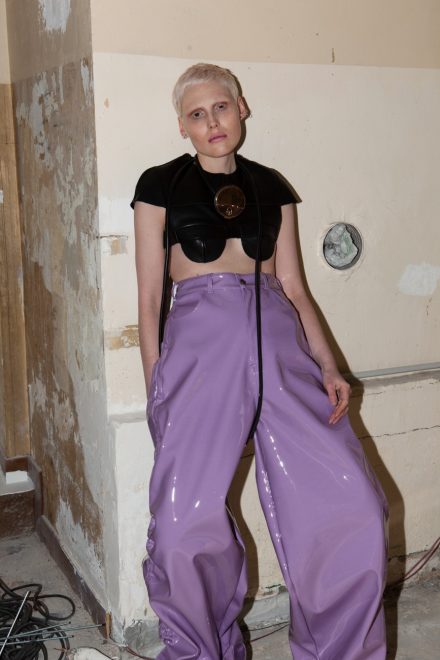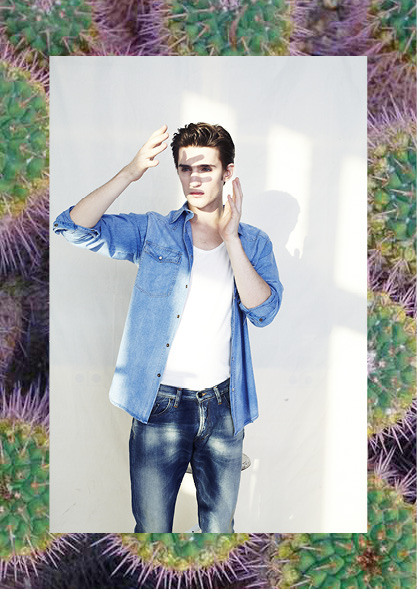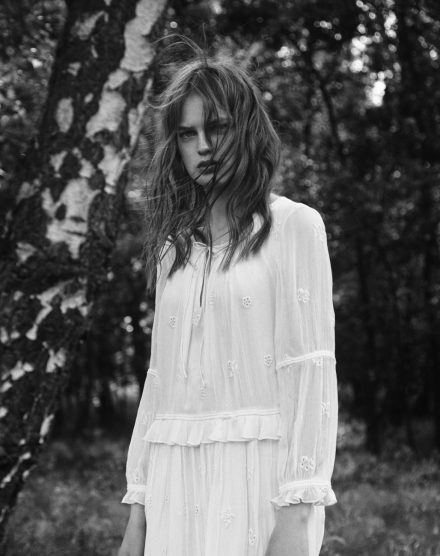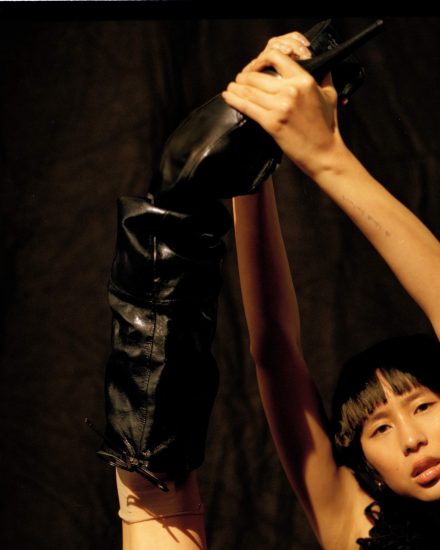For this exclusive Œditorial, we spoke to DJ Lúcia Lu about Berlin’s queer hip-hop scene, cancel culture and curating parties with a mission.
The Moabit native, Lúcia Luciano aka DJ Lúcia Lu, arrives at every set with an abundance of energy and sass that matches her bouncy beats and blends of hip-hop, techno, salsa, dancehall and reggaeton. Towards the end of 2022, it was not uncommon to see her name appearing on European techno-party lineups. The rising starlet thanks her HÖR Berlin recordings for her growing fandom, who have applauded her fashion and dubbed her mixes as “certified ass shakers”.
Although she only transitioned into playing techno during the pandemic, Luciano has been making waves in the city’s underground dance scene since 2017, namely through Hoe_mies, an inclusive hip-hop party she co-founded with school friend, DJ Meg10. The pair established the party to provide a safe space for femmes and queers to enjoy the genre without being hassled by cis-men in bottle-service clubs.
More than just a pretty face, Luciano is all about using her platform to illuminate pressing issues relating to race, gender, class and sexuality. As a queer female artist of colour, she regularly reminds herself of the marginalised communities she represents and advocates for their voices to be elevated in the industry.
In this Œditorial, Luciano lures us down to the Abyssal Zone to get deep about the whitewashing of dance music, recovering from being ‘cancelled’ and curating intentional parties.
BELOW
Shirt & Shoes – Laura Gerte
Skirt & Leg Warmers – Maris Pieper

Œ: When I think about global hip-hop hubs, Berlin doesn’t naturally spring to mind. Growing up in Moabit, when did your love affair with the genre begin?
Luciano: Firstly, how could you not love hip hop?! Growing up in white Germany, this music connected me to my roots. I didn’t just play hip-hop before I transitioned to techno, I also played Latin music like dembow reggaeton and Caribbean music like dancehall, reggae and soca. I love these genres because I grew up with them. The artists have inspired me a lot and still do.
I hope everyone who also appreciates these genres takes the time to learn about the cultures behind them. Music is a powerful medium for people to express themselves and speak their truth. So you can also learn a lot about different cultures and experiences from it. I honour hip-hop and Latin and Caribbean music because it’s music from the Black diaspora.
When I found out that the early founders of house and techno music were also Black and how much the electronic music scene has been whitewashed, I decided to no longer only enjoy the music in my private party life. This felt like a mission. I can’t wait to produce my own music that fuses all the genres I love to play.
Œ: Starting a hip-hop party in the “Mecca of techno” is a pretty bold move. When you and DJ Meg10 co-founded Hoe_mies in 2017, what was your mission?
Luciano: Hip-hop certainly has a place in the “Mecca of techno” and that place is very needed! And Hoe_mies is still the best hip-hop party showcasing international artists in Berlin. When we gave birth to this project six years ago, our vision was to create an intentional space in the hip-hop scene where femmes and queers could feel safe and party at peace. We were one of the first parties to work with awareness teams and key rules to make this happen.
We also wanted to build a community that empowers the very few marginalised femmes and queers in the global hip-hop industry. The vision for Hoe_mies was to share music, celebrate who we are and share skills so we could elevate the community. We became a platform for so many artists and had the opportunity to work on different projects as a DJ duo, podcasters and creatives. Although I’ve taken a step back, I still stand behind this project and hope there will be more hip-hop parties that focus on these communities.
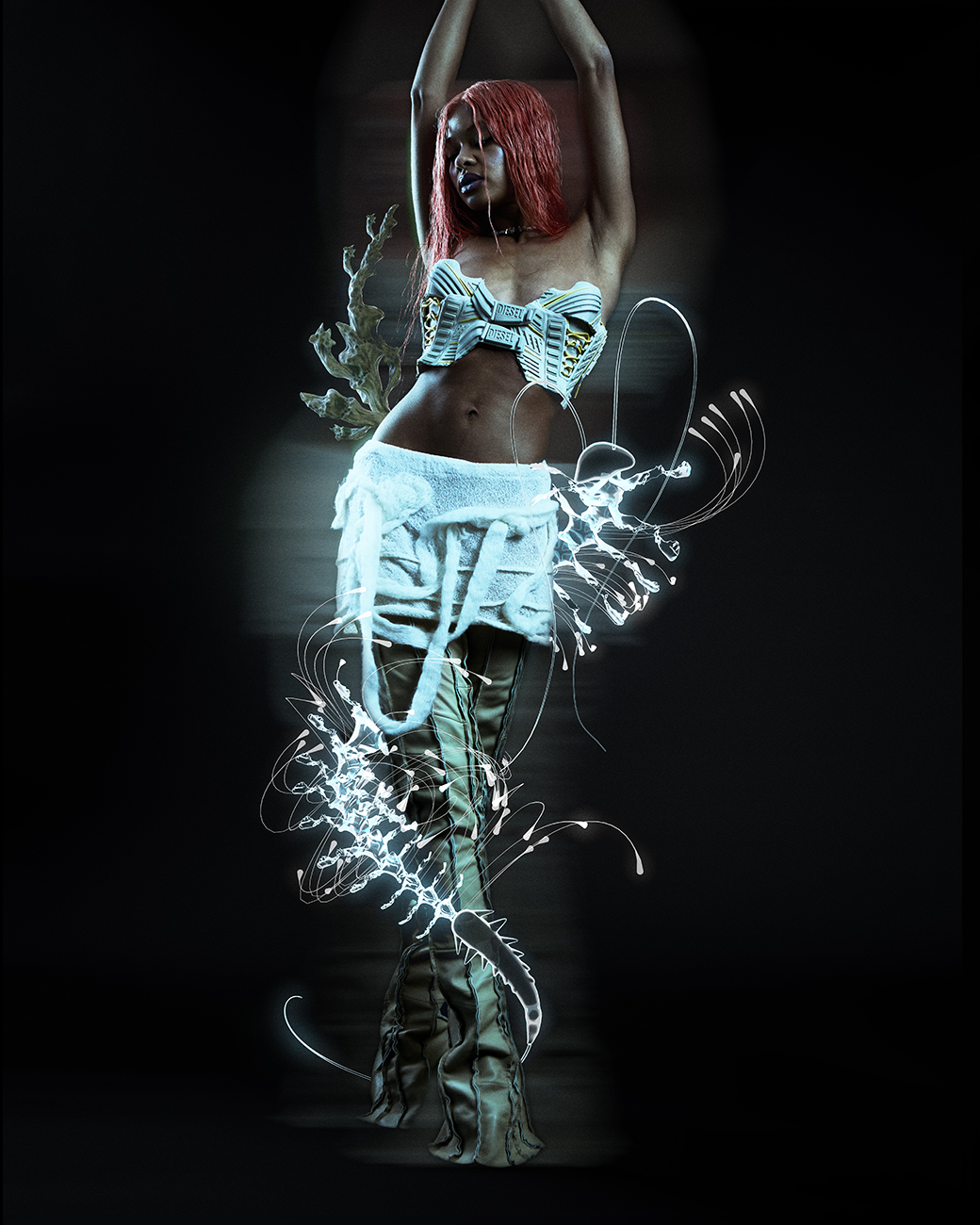
LEFT/ABOVE
Top – Haram
Pants – Laura Obst
Skirt – Sara Spenner
Shoes – Talent’s Own
Œ: Although you’ve been active in the underground scene for many years, you only recently transitioned into playing techno. Was there a particular collective or club that influenced this move?
Luciano: Berghain is where it all started. Even though the club has changed a lot, it will always be my first love. Another queer party I’m really happy to have in Berlin is ‘fluid.vision’. I only played there once but the love and energy there were just different.
I also want to mention ‘no drops’, a party series in Haifa, Palestine/Israel that brings people together on the dance floor despite their religious background or ethnicity. Something so rare but so beautiful. Even though I had to go through a tough airport questionnaire procedure, I was so grateful for the opportunity to play at this party. Haifa made a big impression on me because it shows what is possible through nightlife. I love parties that have a mission.
Œ: Thinking about Berlin nightlife, although it is often considered one of the most progressive and inclusive cities, clubs have come under fire recently regarding BIPOC and FLINTA* artists on lineups. What are your thoughts on this?
Luciano: I would like to see more diverse lineups and more wealth for everyone working in the nightlife sector. At the end of the day, the scene is a mirror of our social structures so disparity is also a big problem here. The music scene is for a lot of people and my prayers go out to those that make it happen weekend by weekend, festival by festival. I want everyone to feel valued and appreciated at work. I just hope one day this will shift.
Despite this, I also want to acknowledge all the incredible FLINTA* and BIPOC artists that came out this year and all the DJs that paved the way for us over the last couple of years. There are so many new DJs from all over the world and I’m so curious to find out more about them.
I also believe in creating your own space instead of waiting to be invited. Start your own parties or collectives and build your audience. This proactive attitude is very much needed all over the world. In general, I have the impression that way more people than ever are aware of the issue and are open to making changes. I think long-term changes take more time to materialise but I’m still very optimistic!
LEFT/TOP
Top – Haram
Skirt – Sara Spenner
Pants – Laura Obst
RIGHT/BOTTOM
Jumper – Laura Obst
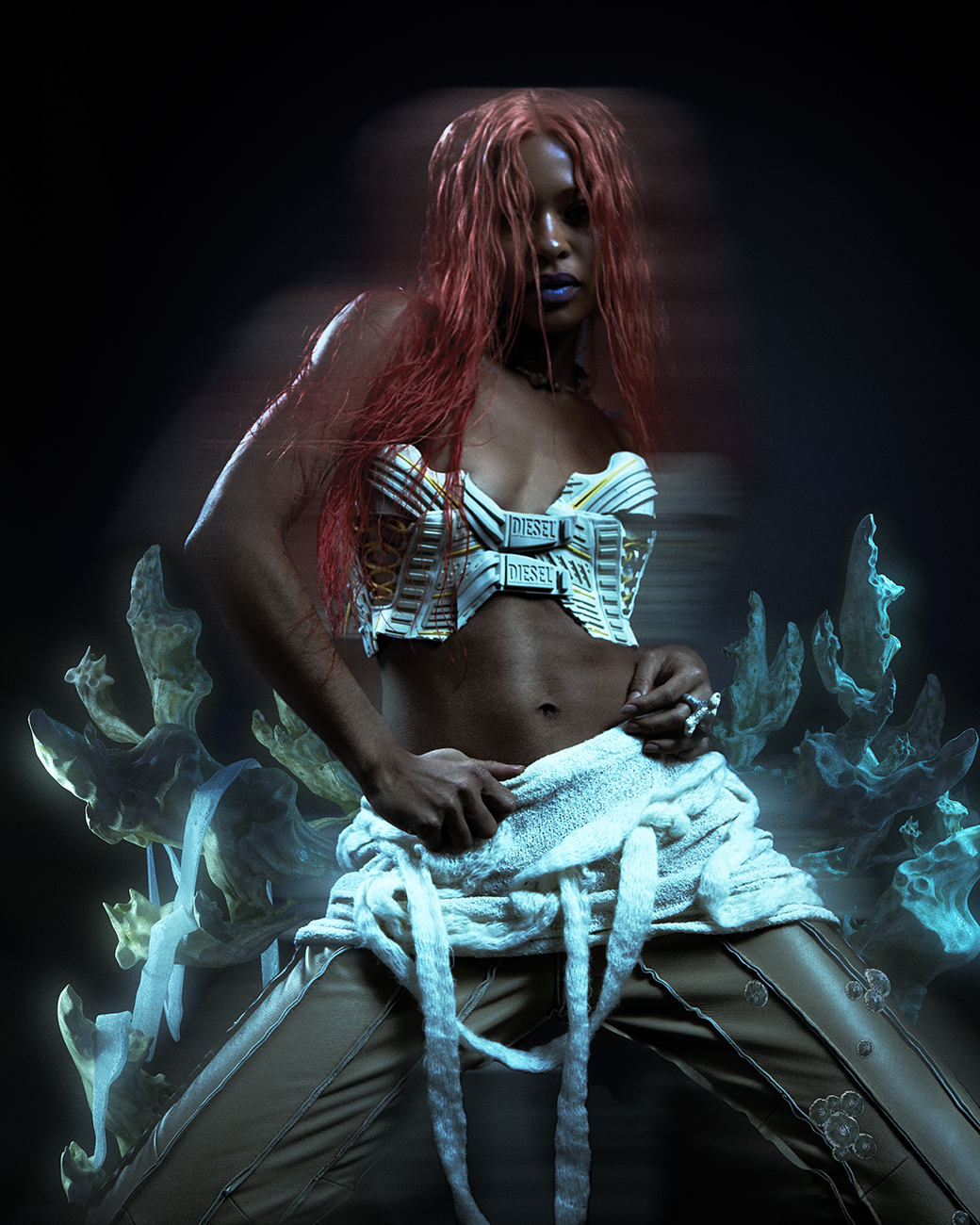

Œ: Besides throwing parties, you and Meg10 had your own Spotify Original Podcast series called Die Realitäter*innen, which explored masculinity, body positivity and self-determined sexuality. How did that come about?
Luciano: When Meg10 and I were touring as a DJ duo, we were constantly meeting so many interesting people. We were trying to find ways to share those conversations with a broader audience. Spotify came just at the right time and opened that door for us.
When you are regularly having these deep conversations, you don’t have much time for music anymore because you are constantly looking for interview partners and working on the questions for the episodes. It was such a nice experience, which I am very grateful for, but it was also really time-consuming.
When we first started, I was definitely much shyer than I am now. I remember the first few episodes, speaking into the mic and thinking: “Oh my God! Say less so you don’t say anything you regret!” I don’t know, I guess I was scared. Now I’m more comfortable completely being myself, especially after we went through the crazy ‘cancelling situation’.
Œ: The ‘cancelling situation’ was regarding someone you hosted on the show, right? What happened?
Luciano: We invited someone on the podcast who we didn’t know was suspected of physical assault, which later turned out to be sexual assault. We were contacted by people who claimed to be friends of the victim, requesting for the podcast to be removed. Since it was a Spotify Original Podcast, this wasn’t something we could take into our own hands.
After the public callout, it took us a week or two to present the middle ground between all parties involved. The episodes were edited and we cut out the parts of the alleged perpetrator. I thought it was unfair to remove the full episode because we always hosted two guests.
At that time we were one of the very few black and brown German-speaking podcasts. We always had that platform character so we wanted to involve as many black, brown and queer voices as possible. This podcast was a chance to share their perspectives.
For me, it was particularly heartbreaking that our podcast, which had such a strong community focus was publicly under fire and labelled as a platform for abusers so shortly after it launched. Our guests were often local people who weren’t in the public eye. So how could we have known this about them? Who were we to judge?

LEFT/ABOVE
Top – Sara Spenner
Skirt – Tanja Bombarch
Shoes – Essie Kramer
Eyewear – Yulya Vuluy
Œ: It feels like ‘cancel culture’ is really having a moment right now. Career-damaging information can spread like wildlife on social media. Had you anticipated a situation like this or were you caught completely off guard?
Luciano: When people first started calling us out online, we were freaking out because it felt like the whole public was looking at and shaming us. In those moments, you just sit there and think: “How could this happen?! You, as a queer feminist, how did you let this happen?” You are in a place of leadership and responsibility. You feel so embarrassed. Even though it was happening within this bubble of people, it felt like everyone knew about it.
At one point, I was scared to go outside and became quite depressed from it. Then after going through these heavy emotions you start to feel anger. You wish you could sit down and speak to these people in person, but they only ever interact anonymously through the internet.
They started to create this campaign against us, spreading personal information that wasn’t true. Then the suspected victims targeted us. The worst part was how we, as women, were attacked more in public than the men who were suspected of doing wrong. We lost business partners and jobs. At some point, you know it has to stop…
Œ: Although it sounds like the situation was stressful to navigate, were you able to learn anything from it?
Luciano: We came back stronger! I feel like now I have nothing to fear – the worst has already happened. It’s not easy to talk about this topic because it has so many layers. You have the victim, the suspected perpetrator, and then you have the system, which is clearly not efficient enough because all these cases fall into the hands of people with no experience. I understand and empathise with the frustration of the victims.
Overall, I learnt a lot from it – I now know more about how these systems work. But I’m also aware that I’m not a judge, nor the police, nor a psychologist. I’m not a professional on this. I bought some books to educate myself and I listened a lot. This topic is ongoing – sexual assault is happening more than ever and we need better infrastructure to tackle it. The system we currently have is not working.
LEFT/TOP
Jumper – Laura Obst
RIGHT/BOTTOM
Top – Haram
Necklace – Talent’s Own

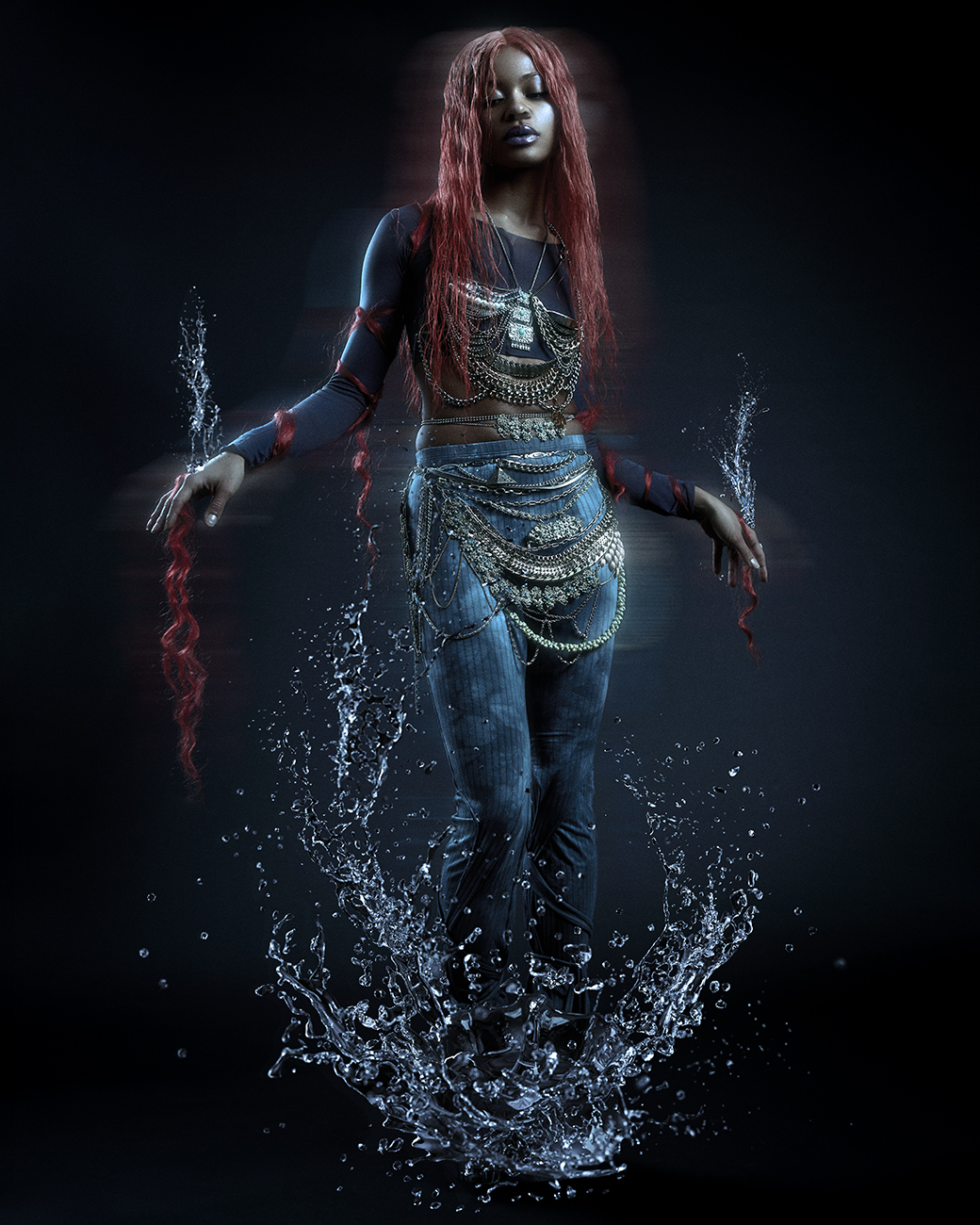
Œ: For this Œditorial, we have envisioned you as a mysterious, siren-like creature. How well do you feel you embody this persona?
Luciano: The siren vision is following me! *She laughs* It all started with an extraordinary encounter with a spiritual medium that said I was a water being in one of my past lives. It evolved with people saying that in one of my Hör Berlin videos, I reminded them of a mermaid – my former DJ alias was actually Ariel! When Disney announced the movie remake, I was like: “Shit! I might have to change the name, otherwise people will think I want to be the Disney princess!” So I changed it.
Since this siren theme has been following me, I was very excited to explore it more for this shoot. It’s quite funny – when I told people I had a few gigs last year under my DJ alias Ariel, I was only met with positive feedback. So let’s see. You might see Ariel floating behind the decks on a beach very soon!
Œ: For today’s shoot, you’re wearing exclusively Berlin-based designers. As a Berlin native, what is your perception of the city’s fashion scene?
Luciano: That’s a tough question, it’s hard to say! There is this overall perception of Germans not being fashionable – hiking boots, raincoats and practical pants *She laughs* I actually find this city very fashion-forward, particularly the club scene. I love people who come in outfits they created themselves. It adds another layer of excitement when you go out. I take a lot of inspiration from Berlin’s nightlife.
I do think Berlin could do more to honour young designers. I wish there would be better infrastructure and support for upcoming designers. I feel like Berlin’s impact on the global market will have its comeback very soon. I love what is happening here. The whole scene is constantly changing and I hope we implement healthier structures for those who work in the industry and the environment.
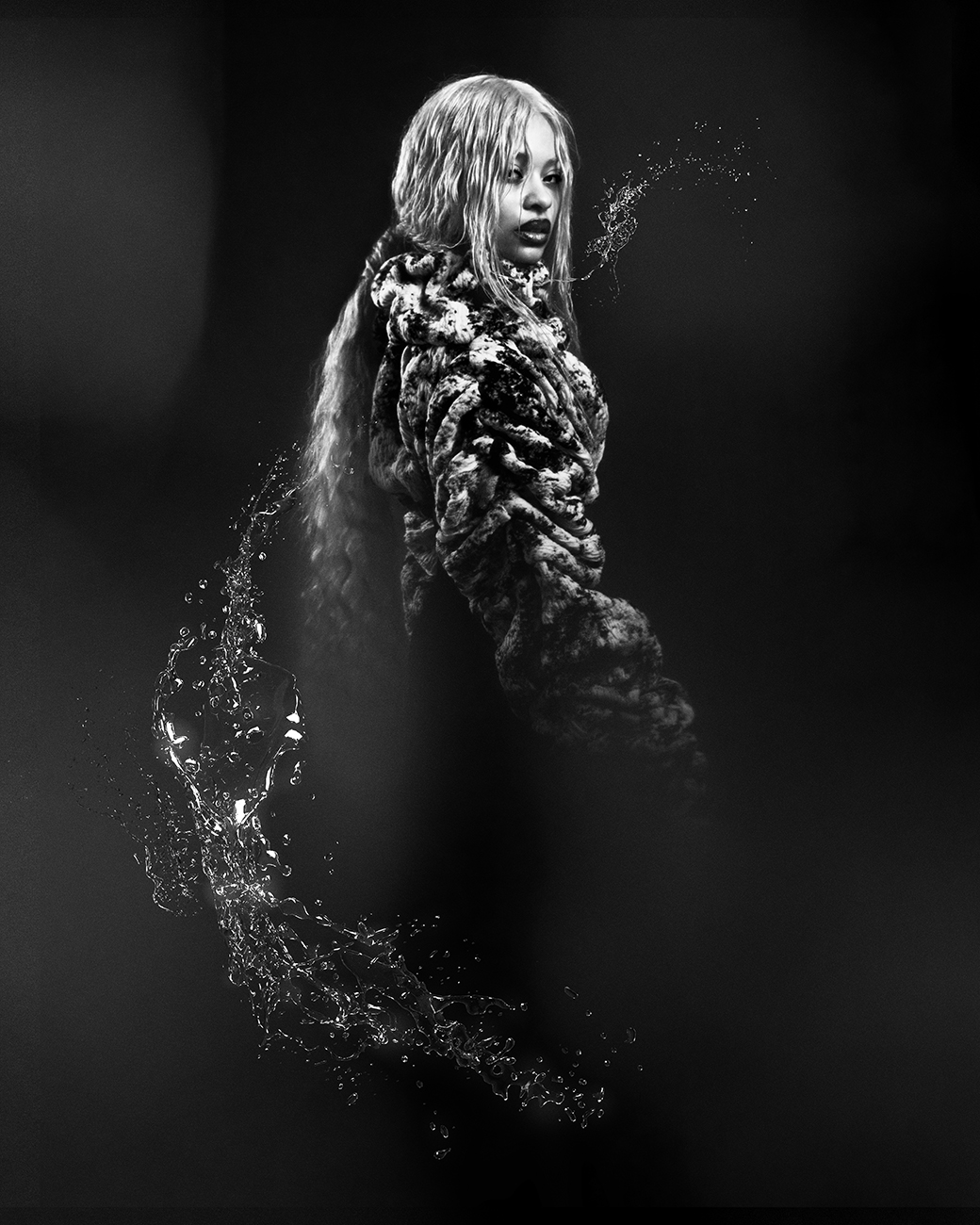
TOP/LEFT
Jumper – Laura Obst
Dress – Clara Collette Miramon
BOTTOM/RIGHT
Top – Haram
Necklace – Talent’s Own

Special thanks to PLATTE.Berlin for the shooting space.
Credits
TALEnT
Lucia Lu
Production & WORDS
Lucy Rowan
Photography & Art Direction
Kitty Lee Schumacher
CGI Art
Maxi Galgenmaier
STyling
Sophie Pfuhler
Hair & Make-up
Lucia Binta
Photography Assistance
Serge Sanchez
Production Assistance
Alberto Massaro
STudio
PLATTE.Berlin

